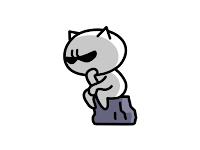While I've worked at the university of Iceland as a Japanese language teacher, I needed to teach language, make examinations, mark and evaluate them.
I love teaching and almost all works as teacher, but it was not easy for me.
The reasons why I say it's not easy is, because the Japanese language is "still alive".
The languages which people keep using is constantly changing.
For example, the sentence
お召し上がりください。
is many companies using on their product.
As a Japanese language teacher, I should point out it's grammatically incorrect, yet I also need to mention that nowadays people understand and it's considered as a "correct expression".
Another example, 五月晴れ doesn't mean the beautiful sunny weather in May, or 小春日和 shouldn't use in spring when you feel comfortable the warm climate.
As a Japanese language teacher, I need to make a clear line for "correct" or "incorrect" especially on the examination.
However when I teach in the class, or just as an ordinary Japanese speaker, I sometimes really confused how should I think about those INCORRECT-or-NEW USAGE of the language/expression.
My current stance as an ordinary Japanese language user is "I don't use these newer-usage expressions/words by myself, but try to NOT think it's WRONG usage".
I cannot ignore my awkward feeling against to the "non-traditional usage", because I teach Japanese language, especially focus on the grammar.
However I understand the languages which is alive changing constantly, moreover the language is an important tool for communicate with others.
However I understand the languages which is alive changing constantly, moreover the language is an important tool for communicate with others.
So, even though the usage/expression is incorrect grammatically, if many current users consider it's NOT WRONG, then I should respect it, I think.
Yet, I cannot think the "non-traditional usage" is CORRECT, so I don't use it by myself.
Yet, I cannot think the "non-traditional usage" is CORRECT, so I don't use it by myself.
I often think I'm stiff and stubborn with Japanese language... yet if there is no person like me, then I believe that Japanese language will be "lawless-language", and there will be no correct or incorrect.
If so, the language won't be work as a communication tool between people, right?
How do you think about your first language and Japanese "non-traditional usage"?
Do you think these are correct? or incorrect-but-not-wrong? or incorrect/wrong?
Always so interesting to think about language, isn't it?







